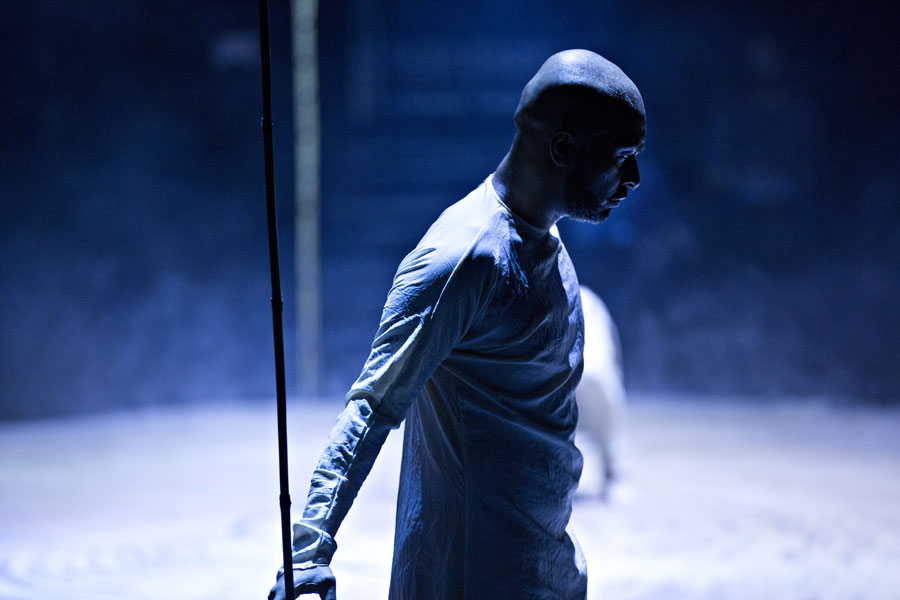“As in many myths, the female characters are often the unsung heroes, the figures of strength and imagination and endurance. It is their unsung stories in particular that still haunt me today.” – Akram Khan
Award-winning choreographer and dancer Akram Khan presents his latest full-length production, Until the Lions. In this partial adaptation of poet Karthika Naïr’s book Until the Lions: Echoes from the Mahabharata, an original reworking of the epic Mahabharata, Khan uses kathak and contemporary dance to tell the tale of Amba, a princess abducted on her wedding day and stripped of her honour, who invokes the gods to seek revenge. In an epic theatrical piece, Khan explores the notion and the physical expression of gender, bringing together some of the stellar artistic team behind his solo DESH: writer Karthika Naïr, visual artist Tim Yip, lighting designer Michael Hulls and dramaturg Ruth Little. Khan performs himself alongside two remarkable female dancers, Ching-Ying Chien and Christine Joy Ritter, and four live musicians: singers Sohini Alam and David Azurza, percussionist Yaron Engler and composer Vincenzo Lamagna.
Message drom COLAS: Since 2010, Akram Khan Company and Colas have been traveling the same road, side by side. DESH, iTMOi, TOROBAKA, Vertical Road: each of the choreographer’s works combines traditions and cutting-edge innovation, drawing upon the strength of deep roots united with the necessary evolution of a message anchored in today’s society.
The clear break from the past appears at the very beginning of the piece, because, for the first time ever, Akram Khan conveys the voice of a woman, the author of Until the Lions, a work in which women have been placed at the heart of an epic Indian tale, a role traditionally bestowed solely upon men. Akram Khan reveals his two heroines, then gradually transforms them into warriors determined to fulfill their destiny, thus restoring their status, as well as giving them a major role in the Mahabharata tradition. Amba, the female character, does not have the right to combat the one who has offended her. A thirst for vengeance transforms her into a man-warrior, giving her the power to fight her battle and free herself. Above and beyond the narrative, the power of transformation is central to Khan’s new choreography. Triggered by the characters’ determination and obsession with their target, the desire to be at peace with our own ethics changes that which we take for granted and transformation becomes inevitable.
As is often the case, Akram Khan’s intention has an eerie echo in the business world: transforming traditional codes is more topical than ever. Transformation is a necessary step in development, as both a source of impetus and a springboard to renewal.In the current economic context, Colas has chosen to proudly assert its corporate values, as a responsible, innovative and pioneering enterprise, by mobilizing its innovative talents to meet the need to reinvent ourselves. [Hervé Le Bouc, Chairman & CEO].






